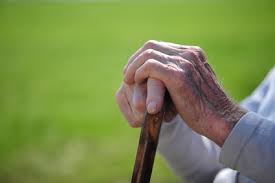 Simply put, everyone’s goal is to remain at home as they age or recuperate from an illness or injury. When adult children consider the future living arrangements of their loved ones, many ask their parents about their thoughts of moving to an alternative living arrangement such as an assisted living facility or nursing home. They often respond, “Not me, I am not ready. I want to live here in my own home until I die.” Response Senior Care aims to help make that a reality.
Simply put, everyone’s goal is to remain at home as they age or recuperate from an illness or injury. When adult children consider the future living arrangements of their loved ones, many ask their parents about their thoughts of moving to an alternative living arrangement such as an assisted living facility or nursing home. They often respond, “Not me, I am not ready. I want to live here in my own home until I die.” Response Senior Care aims to help make that a reality.
Below are some warning signs to look for, to determine if additional help is needed.
Changes in their personal grooming
- Bathing – not bathing, body odors
- Hair care – not washing or brushing hair
- Nails trimmed and clean – check finger and toe nails
- Clothing being changed daily, staying in the same clothing all day/night
- Brushing their teeth or dentures
- Check their skin for bruises, sores, scrapes and dryness
- Mobility – can they safely walk and get up from a lying or sitting position without assistance
Household Activities
- Check bathroom and kitchen for cleanliness
- Bed linens – cleaned, routinely changed
- Look at dishes, pots/pans for cleanliness or use, check for burned pots/pans
- Check refrigerator – spoiled foods, lack of food items
- Check for expired food dates (canned goods, boxed foods items, frozen foods)
- Cleanliness of living areas (floors, dust)
- Temperature – too hot or cold
- Check the mailbox – uncollected mail, returned mail (lack of postage)
Finances
- Paying their bills
- Utility turn off notices
- Review checking account – overdrafts, returned checks, sufficient funds in accounts, unauthorized use
Safety
- Missed Appointments/ Outings –with doctor, dentist, hair appointments, church, senior center, friends
- Check prescribed medications and over the counter medications – not properly taken, overused, expired, multiple bottles of medications
- Stove left on
- Refrigerator doors open
- Indication of falls – furniture moved, dropped items, bruising on person
- Not answering the phone
- Doors and windows unlocked
- Emergency situations – remember to call 911, answering the door, what to do if an emergency occurs
- Driving a vehicle – should they be driving, recent accidents, lost while driving
These are just a few of the things that family caregivers can look for that are relatively easy to detect and do not cause conflict. If you see any of these changes, you need to actively look for ways to assist them in their home or find alternative ways to help them maintain their independence.
Options for Care in the Home:
- Family and friends to provide care and monitor their needs
- Have loved one live with you
- Seek Caregiving Services ( Licensed, Insured) Monitored by an RN
- Care Management Services – assess, plan and monitor care needs
- Find Assisted Living or Nursing Home Care depending on their needs
If you need professional care assistance assessing the situation, please do not hesitate to call Response Senior Care for help at 410-571-2744. We will gladly provide you with a complimentary IN-HOME assessment. No Obligation.
